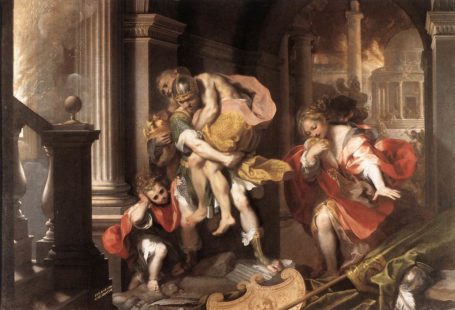In his classical approach to systematic theology, Thomas Oden references the fact that modern journalism unwittingly derives its sequence of good reporting from classical Christian theology, “which itself sought to report the best of good news.”((Thomas C. Oden, The Word of Life: Systematic Theology, Vol. II (San Francisco, CA: HarperSanFrancisco, 1992), 30.))
These four classical questions (modern journalism adds a relevant fifth question, When?) encompass the part of Christology that focuses on the teaching about Christ’s person (as opposed to his work). The questions are:
- Quis (who)? Who assumed humanity in the incarnation?
- Quid (what)? What nature did the eternal Son assume?
- Quomodo (how)? How are deity and humanity united in one person?
- Ad quid (why)? Why did the Son become flesh?
In Christian orthodoxy, the answers to these four questions are summarized as (1) the divine Logos assumed (2) human nature, (3) so as personally to unite deity and humanity in Christ, (4) for the redemption of humanity.
This same model becomes the basis for classical Christian educators leading recitations in a flipped or University model classroom. For example, in a discussion about justice, a teacher could ask,
- Quis (who)? Who is a just person?
- Quid (what)? What is justice?
- Quomodo (how)? How is justice dispensed?
- Ad quid (why)? Why should we be just?
Of course, the questions that could be derived from a conversation started by each of these four questions are myriad.
Asking good questions is the bedrock of successful maieutic teaching (i.e., Socratic discussions) where the teacher plays the part of midwife, helping the students deliver the truth. In this classical approach to teaching, the teacher helps bring into clear consciousness the latent ideas students are picking up from their lectures and reading.
Said another way, maieutic teaching is the best method for helping students cognize ideas; but to be successful, a teacher must be able to ask good questions like the ones presented above.




